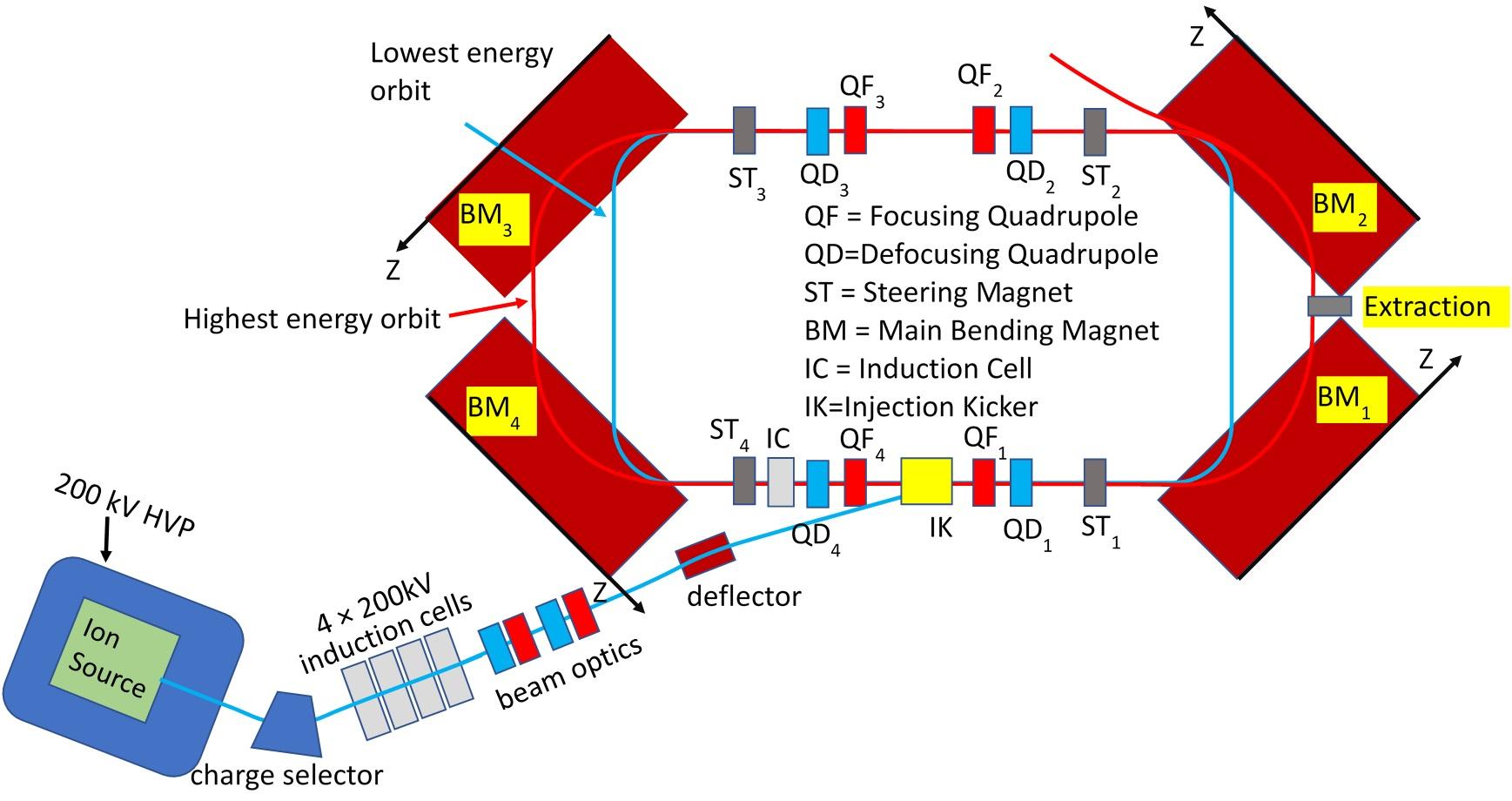March 05, 2020
Crucial Transverse Beam Dynamics of The Racetrack-Shape Fixed Field Induction Accelerator for Giant Cluster Ions
SOKENDAI Student Dispatch Program program year: 2019
Taufik, Accelerator Science

Cluster effects, a well-known interaction between energetic giant cluster ions and a target material has attracted attention in the field of high energy application such as mutation breeding or material science. So far, the giant cluster ion acceleration is performed by an electrostatic accelerator which has a limitation in maximum energy. Meanwhile the radio frequency (RF) acceleration has a bandwidth limitation due to extremely heavy mass. A racetrack-shape fixed field induction accelerator (RAFFIA) is a unique solution for high energy giant cluster ions acceleration. The RAFFIA employs the induction acceleration system to accelerate carbon cluster (C60) ions from 10 MeV to 144 MeV.
In order to assure a transverse beam motion stability (the motion of the beam in perpendicular direction to the particle orbit), we have established a particle tracking code and linear orbit theory. We found that the orbit stability can be obtained by applying bending magnet with a reverse field in the front edge and ramping pattern of the quadruple doublets and the steering magnet. The inhomogeneity of the magnetic field in the longitudinal direction of the magnet generates an inherent Closed Orbit Distortion (COD) which is crucial for stability. The space-charge effects remain stable under 225 μA of the beam current threshold. Such beam current threshold is sufficient for mutation or material science application.
My research was presented in the 10th International Particle Accelerator Conference (IPAC'19), which was held in Melbourne Convention and Exhibition Centre (MCEC), Melbourne, Australia from May 19 -24, 2019. IPAC is the main international event for the worldwide accelerator community and industry.
Through this conference, I could share a lot of information with young scientists of the same generation and discuss about my research with prominent accelerator scientists. I came in contact with the recent activity in the world, such as laser assisted acceleration. I also had opportunities to contact with the accelerator technology suppliers, advertising the possible realization of the RAFFIA.
High Energy Accelerator Science, Accelerator Science, Taufik
